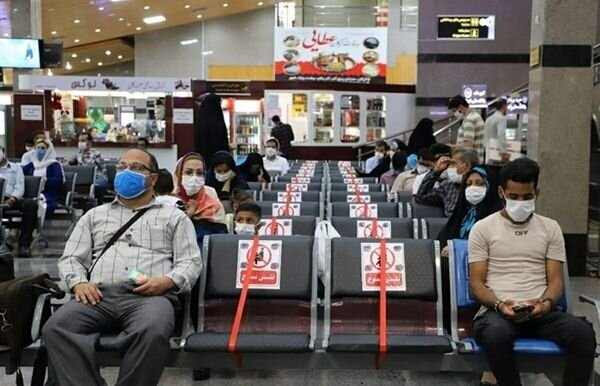Iran closes Afghan border as Omicron surges

TEHRAN – With the outbreak of Omicron, Afghan travelers are not allowed to enter Iran through the Dogarun border for 15 days, according to the National Headquarters for Coronavirus Control.
Restrictions will not apply to passengers traveling for health, study or trade purposes or people having permanent residency permits; freight travel through land borders will continue in the meantime.
On December 25, the Interior Ministry issued a 15-day travel ban from eight African and four European countries.
Iran has two “golden weeks” to expand booster vaccination coverage to prevent a potential explosion in Omicron infection. Passengers from eight African countries, including Zimbabwe, Mozambique, Namibia, Malawi, South Africa, Eswatini, Lesotho, and Botswana, are banned from entering directly and indirectly for 15 days from the date of notification.
Iranians entering from these 8 countries, in addition to having a certificate of receiving two doses of vaccine and performing a negative PCR test with a validity of 48 to 72 hours, if they have a disease, will be quarantined at personal expense.
Direct and indirect passengers from the UK, Norway, Denmark, and France must have a certificate of two doses of the vaccine, a negative test valid for 48 to 72 hours from the date of notification. In case of any symptoms or test positive, they will be quarantined for 14 days at personal expense.
Iran’s health minister Bahram Einollahi said on Saturday that the rapid spread of Omicron may pose serious threats to the country although he insisted that authorities had identified few cases infected with the variant.
Einollahi said that Iran has two “golden weeks” to expand booster vaccination coverage to more people in order to prevent a potential explosion in the number of infections with Omicron in early January.
Health ministry figures published on Saturday showed that booster vaccine shots delivered across Iran had reached nearly 5.5 million doses.
Omicron, which has raised global fears of a surge in infections, was first detected in southern Africa earlier this month and has prompted governments across the globe to impose travel restrictions and take other measures to try and contain it.
So far, 34 cases of omicrons have been identified in the country and 8 suspected cases are being investigated.
FB/MG

Leave a Comment